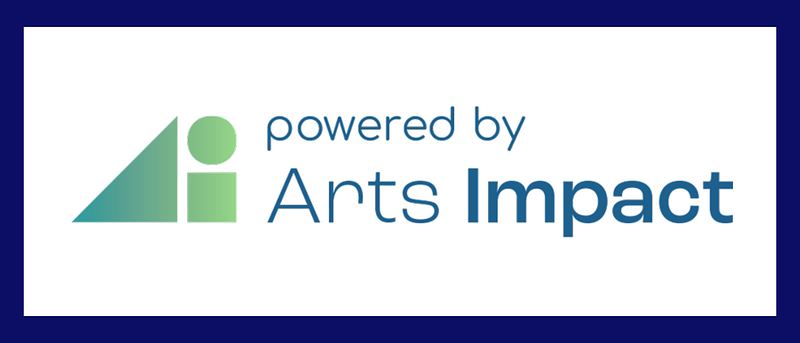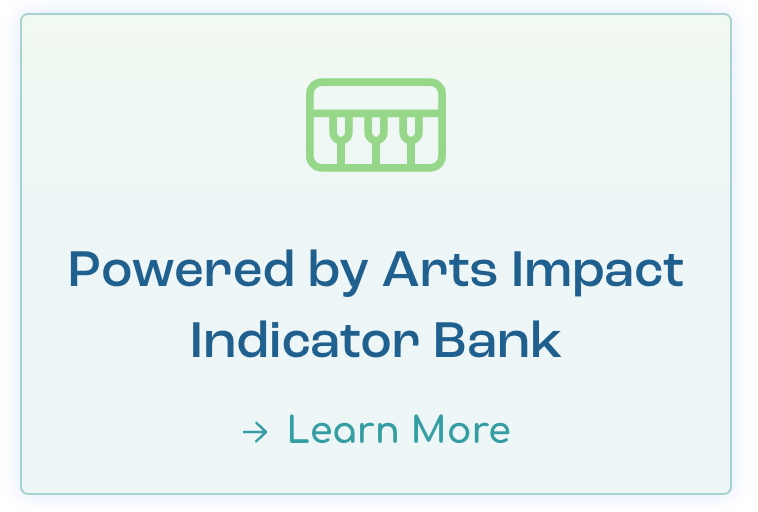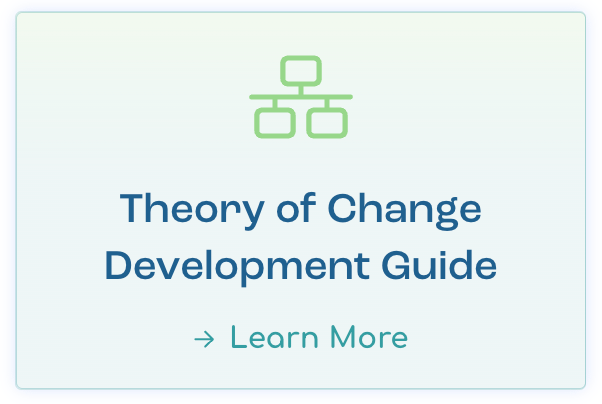
The Zoom call with Meredith Davis starts as she warmly greets us from her cozy home office in Guelph. “I started the company after having my third child,” she begins, “realizing I wanted to support as many nonprofit organizations as possible in doing evaluation well.” What immediately stands out is her blend of pragmatism and passion, as she describes how her firm, Good Roots Consulting, helps nonprofits not only assess the impact of their programs, but also guides them in strategic planning for the future.
“These two areas – evaluation and strategic planning – really go hand in hand,” she says with a smile. “When you have a clear sense of what you're trying to achieve and you're evaluating that, it naturally feeds into effective planning for the future.”
But today’s focus isn’t just on her firm’s work – it’s on a very specific endeavour: authoring the creation and implementation of the Powered by Arts Impact Toolkit, one of the culminating assets of the Association for Opera in Canada’s multi-year strategic exploration, development, and digitization of evaluative resources for opera and the broader arts sector. It’s clear this is something Meredith is deeply invested in. When asked why she felt it was important to collaborate with the Association for Opera in Canada (AOC) and Mass Culture to create an evaluation toolkit for arts organizations, she explains, “This is something I’ve wanted to do for a long time. Often funders expect organizations to report on their outcomes and the impact they’re trying to achieve, however many organizations lack the capacity and knowledge to provide this. By creating this toolkit, it helps organizations take action on evaluation.” she stated, noting the Canada Council for the Arts has been the major funder of the AOC-led grant that made Powered By Arts Impact possible.
She goes on to explain the details of the toolkit: “The Powered by Arts Impact Toolkit is a practical, web-based resource designed to build organizations’ confidence around evaluation. It includes nine different resources, such as guidance on articulating a theory of change – how organizations bring about change in the world, an evaluation plan template to guide the process, and an interactive indicator bank.” She adds that the indicator bank is particularly useful, as it lists common outcomes that organizations aim to achieve with their participants or audiences. “It even offers practical ideas for measuring those outcomes, including ready-made survey questions,” she notes.
Meredith emphasizes that the toolkit is not just about proving impact, but also improving it:
“Organizations can pull survey questions directly from the toolkit, and we also provide templates for reporting the results they gather,” she says. With Meredith’s explanation, it’s clear this toolkit was designed to be as practical and user-friendly as possible.
She explains how the toolkit is one of the resulting resources of Association for Opera in Canada’s strategic goals around articulating and measuring the civic impact of opera in Canada, that included the Opera Civic Impact Framework, an opera-specific evaluation resource. “That framework was designed from the ground-up, working with opera companies across Canada already doing incredible civic impact work with audiences, students and community groups, and building a framework for their work and the impact they wished to have. It made us realize there was a need for a broader evaluation resource that could serve the wider arts sector, and that’s where Mass Culture came in. Together, we expanded the framework to create something that all arts organizations could use.”
The Powered by Arts Impact Toolkit is thoughtfully crafted to address common challenges organizations face with evaluation. When asked about potential obstacles to getting arts organizations to use the toolkit, Meredith acknowledges that one challenge is simply letting organizations know the toolkit exists. “There are so many resources out there, and it can be hard for organizations to keep track of what’s available,” she says. Another challenge, she notes, is that many organizations find evaluation intimidating and don’t know where to start. “We’ve designed the toolkit as a kind of ‘choose your own adventure’ resource,” she explains. “It starts with the first question: ‘Have you articulated your theory of change?’ If not, we have a resource for that. If they have, they move on to the next step.”
She is careful to point out that the toolkit is designed to be flexible. “We’ve designed it to be a living resource,” she says. “If an organization finds that a part of it doesn’t apply to their specific context, they’re encouraged to adapt it. We actually want to hear about those adaptations so we can continue expanding the indicator database and make the toolkit even more inclusive. The toolkit is published with a creative commons license, by which Association for Opera in Canada encourages organizations to adapt the resources to their specific needs while crediting the original source when sharing publicly.”
As Meredith reflects on her years of experience working with a diverse range of organizations, she shares how her understanding of evaluation has evolved:
“Working with over 60 organizations, many in the arts, I’ve come to see evaluation less as a rigid, scientific process and more as an intention to learn and grow,” she says.
She explains that evaluation can be as simple as sitting down for a conversation with community members to discuss what’s working and what needs to change. “It could be a one-on-one conversation or a more traditional approach like a survey or focus group,” she adds. What emerges is that for Meredith, evaluation is about learning and adapting.
For organizations just starting their evaluation journey, Meredith’s advice is straightforward: “Start somewhere. Don’t worry about getting it perfect – just build in some element of learning and reflection into your programs.” She emphasizes that the Powered by Arts Impact Toolkit is a great starting point, but also encourages organizations to explore other tools linked within the toolkit for further support.
When asked how partnering with AOC has shaped her understanding of the role of evaluation in the arts, Meredith shares how amazing the experience has been. “Working with Christina Loewen and the AOC on the development of the Opera Civic Impact Framework was incredibly eye-opening,” she says. “It expanded my understanding of the arts’ role in society. It’s not just about the enjoyment of the arts – although that’s important – it’s about bringing people together, fostering civic action, and contributing to social movements around issues like the housing crisis and climate change.”
Meredith underscores the importance of arts organizations capturing and communicating the value they’re creating. “The arts have a much bigger role to play in creating social change than many people realize,” she says. But for arts organizations to effectively capture and communicate that impact, they need time, resources, and skills dedicated to evaluation.
“Evaluation is not only about learning and sharing impact, but also about securing the recognition and resources that the arts sector deserves for the critical role it plays in society,” she concludes.
As the interview comes to an end, it’s clear that Meredith Davis is deeply committed to helping arts organizations thrive. Her work with the Association for Opera in Canada and Mass Culture on the Powered by Arts Impact Toolkit is not just about creating a tool – it’s about empowering organizations to recognize and amplify the vital role they play in shaping their communities and society at large. With her guidance, evaluation becomes not just a funding requirement, but a pathway to growth, learning, and meaningful change.
Get to know Meredith





